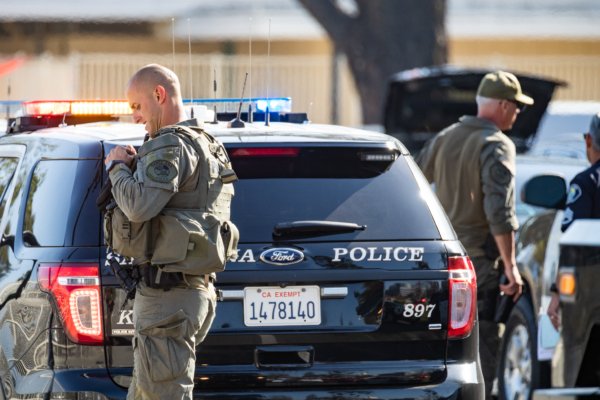California legislative body is currently deliberating on two bills, AB237 and SB19, aimed at strengthening penalties for “swatting” crimes and eliminating existing legal loopholes to enable authorities to more effectively prosecute such criminal behavior.
“Swatting” typically involves making prank calls to law enforcement agencies, leading to a large deployment of heavily armed police forces to a specific address. Currently in California, falsely reporting a life-threatening emergency is already considered a crime, but the threat must be directed towards a specific individual. The current state law does not cover threats made to schools, religious institutions, and other public places. Lawmakers argue that the two bills will address this issue.
The SB19 bill stipulates that any adult who intentionally threatens to cause death or inflict serious harm within a school or religious premises will be charged with a misdemeanor or felony. The bill was introduced by Democratic State Senator Susan Rubio and is scheduled for a hearing in the State Senate Appropriations Committee on April 7th. Rubio stated on social media platform X, “Currently, California’s laws have gaps. Officials have very limited choices unless the threat is explicitly directed towards a specific individual, even if the threat is apparent.” This bill will allow prosecutors to charge individuals making credible threats of mass violence to schools and religious locations, even without specifying a particular person. SB19’s co-authors include Democratic State Senator Catherine Blakespear and Republican State Senator Roger W. Niello.
On the other hand, the AB237 bill applies to daycare centers, hospitals, and workplaces, proposed by Democratic State Assembly Darshana Patel and co-author Chris Rogers in January of this year. The bill was passed by the State Assembly Public Safety Committee on March 14th. San Diego County District Attorney Summer Stephan also supports this legislation. In a statement, she said, “To protect public safety and deter those who might consider making such threats, my office proudly supports the AB237 bill and the sensible reforms proposed by Assemblymember Patel and other co-sponsors.”
These two bills aim to hold responsible those who make threats, acknowledging that even false threats can lead to widespread panic, school closures, and costly law enforcement responses. If these bills are passed, legislators will consolidate them into one law. The need for this legislation was further emphasized in October 2024 when a 38-year-old man was charged for sending hundreds of threatening emails of a mass shooting to Shoal Creek Elementary School in Poway, San Diego. However, a Superior Court judge ruled that these threats were not specific to an individual, despite firearms and school maps found in the suspect’s home. Prosecutors later refiled the charges, naming the school principal as the threatened individual.
In recent years, incidents of “swatting” in California have become increasingly severe. For instance, on March 12th, the San Bernardino County Sheriff’s Office responded to a false alarm at Loma Linda Children’s Hospital, leading to a hectic evacuation and several hours of traffic rerouting.
The following day, the Claremont Police Department received a call claiming that someone had kidnapped a person on the campus of Claremont McKenna College and was threatening to harm them in the restroom with claims of having explosives and threatening to shoot anyone on the campus. Multiple law enforcement agencies swiftly responded, conducting searches in the campus and nearby school buildings but found no one, indicating no active shooter presence. The Claremont Police Department stated, “Significant resources were utilized to respond to this service call, only to determine it was a ‘swatting’ incident.”
In February of this year, an 18-year-old teenager from Lancaster was sentenced to 48 months for interstate threats to injure others. Alan W. Filion issued over 375 instances of false alarm calls and threat calls, including claiming to plant bombs or carry out mass shooting incidents at various locations from August 2022 to January 2024, targeting religious institutions, high schools, universities, government officials, and numerous individuals across the United States. In some cases, armed law enforcement entered the target locations, detained individuals present.
Filion even turned false alarms into a business, posting on social media that he would charge for implementing “swatting.”
In May of last year, 31-year-old Eduardo Vicente Pelayo Rodriguez from Riverside County faced 18 charges for false emergency calls. He claimed to represent ISIS terrorist organization and threatened mass shootings at several schools in the Inland Empire, as well as bombing the Nashville International Airport. Rodriguez used voice over internet protocol services to make over a dozen threat calls.
Furthermore, in December 2023, the Federal Bureau of Investigation (FBI) and law enforcement partners announced the arrest of an unnamed teenager allegedly involved in an online swatting ring that targeted religious, educational, and public institutions in the United States, including Jewish temples and African American churches. The ring was accused of issuing bomb threats and attempted attacks on at least 25 Jewish temples across 13 states from July to August 2023. ◇

